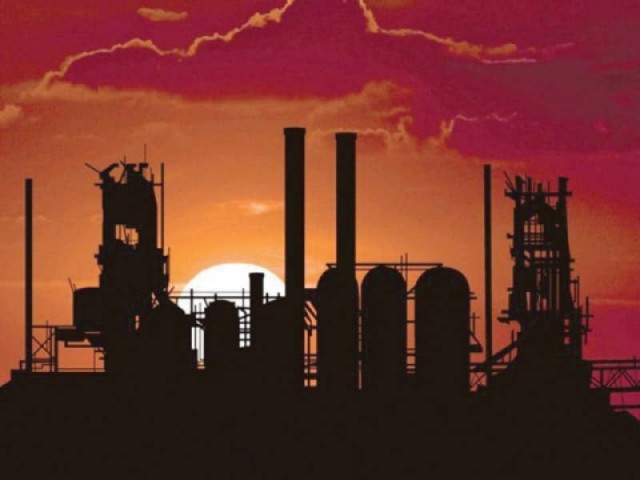LSM growth contracts for first time in 10 years
Output of big industries drops 3.64% in FY19 due to tight fiscal, monetary policies

PHOTO: FILE
The LSM output decreased 3.64% in July-June period of fiscal year 2018-19 as compared to the previous year, reported the Pakistan Bureau of Statistics (PBS) on Monday.
The Pakistan Tehreek-e-Insaf (PTI) government’s tight fiscal and monetary policies have adversely affected the industrial sector. The key interest rate has almost doubled to 13.25% in the past one year.
The State Bank of Pakistan (SBP) governor is targeting hot foreign money by keeping interest rate high - a gamble that may attract foreign funds into government securities in the short term but will increase the country’s dependence on foreign lenders besides affecting domestic industries due to the high cost of borrowing. At present, the real interest rate is positive by 5.45%, which is far above the core inflation rate.
It was for the first time in the past 10 years that the LSM sector recorded a negative growth. Last time in fiscal year 2008-09, the LSM had contracted 6% in the aftermath of global economic meltdown and hyperinflation.
The contraction in the last fiscal year was even higher than the negative 2.1% estimate of the government published in the Economic Survey of Pakistan hardly three months ago.
Owing to the poor output, the share of LSM in total national output plunged to a 19-year low of 10.1%. In fiscal year 2000-01, the LSM share in the total national gross domestic product was 10.3%.
In the last year of the Pakistan Muslim League-Nawaz (PML-N) government in 2017-18, the LSM grew 5.1% and its share in the total national output was 10.7%.
Out of 15 major sectors, six registered some growth and nine saw contraction in the last fiscal year, according to data released by the national statistics agency.
The steep reduction in LSM output would heighten the risk of a prolonged economic slowdown besides increasing unemployment in the country. Higher inflation due to currency depreciation and imposition of indirect taxes has also adversely affected the purchasing power of people. Prime Minister Imran Khan had promised the creation of 10 million jobs in five years - an election slogan that the premier has gradually stopped repeating in his public speeches.
The International Monetary Fund (IMF) has projected only 2.4% economic growth for Pakistan in the current fiscal year due to fiscal consolidation and a tight monetary policy adopted by the government to overcome economic challenges.
The data collected by the Oil Companies Advisory Committee (OCAC) showed that 11 types of industries registered 8.4% fall in growth in the last fiscal year.
The Ministry of Industries, which monitors 15 industries, reported a 4.2% decline in growth. Similarly, the provincial bureaus reported slightly over 1% contraction in 11 industries. In June 2019 alone, the LSM sector growth fell 5.1%. The results highlight the challenges Pakistan may have to face in sustaining a decent economic growth and producing exportable surplus.
In terms of sectors, only six exhibited growth in production in the previous fiscal year. The fertiliser sector showed 7.7% growth whereas electronic goods recorded 12.5% growth.
The manufacturing of leather products expanded 2.3%, engineering products 17.4%, rubber products 3.7% and wood products 20.3%. But the cumulative weight of these six sectors was only 8.4% in the LSM sector.
Industries that are producing nine major products recorded a dip in their manufacturing in the last fiscal year. The textile sector witnessed a slight contraction whereas production of food, beverages and tobacco went down 7.2%, coke and petroleum 8.4%, pharmaceuticals 7.7% and chemicals 3.6%.
The manufacturing of non-metallic mineral products decreased 2.4% in the last fiscal year, the automobile sector saw a reduction of nearly 11.8%, iron and steel products nearly 11.2%.
Published in The Express Tribune, August 20th, 2019.
Like Business on Facebook, follow @TribuneBiz on Twitter to stay informed and join in the conversation.



















COMMENTS
Comments are moderated and generally will be posted if they are on-topic and not abusive.
For more information, please see our Comments FAQ